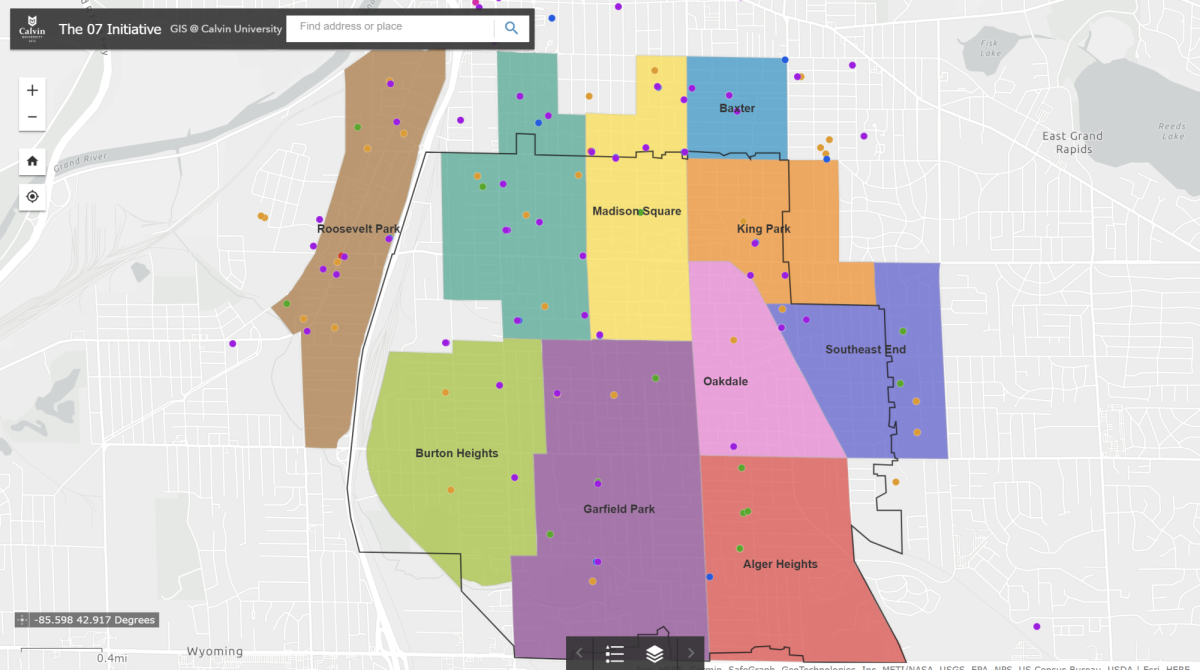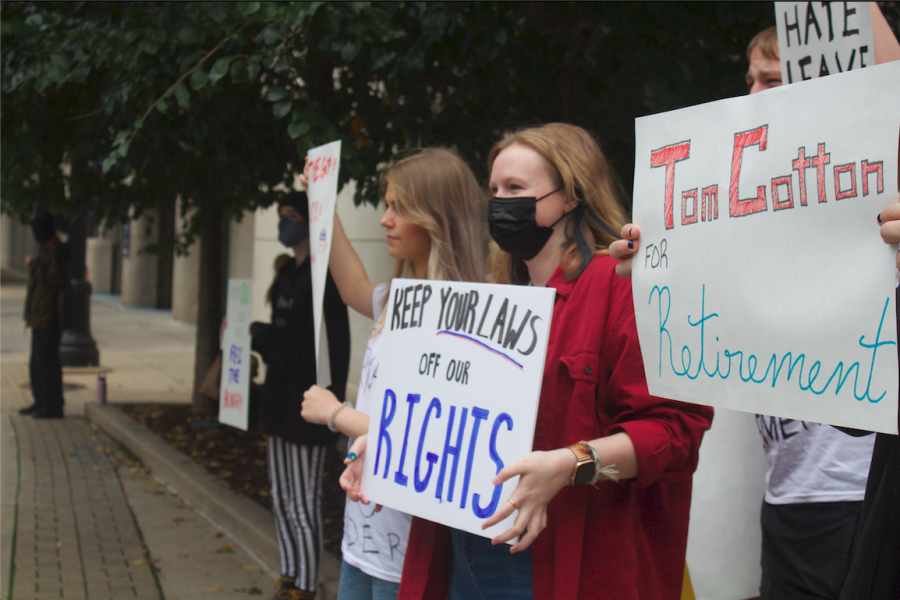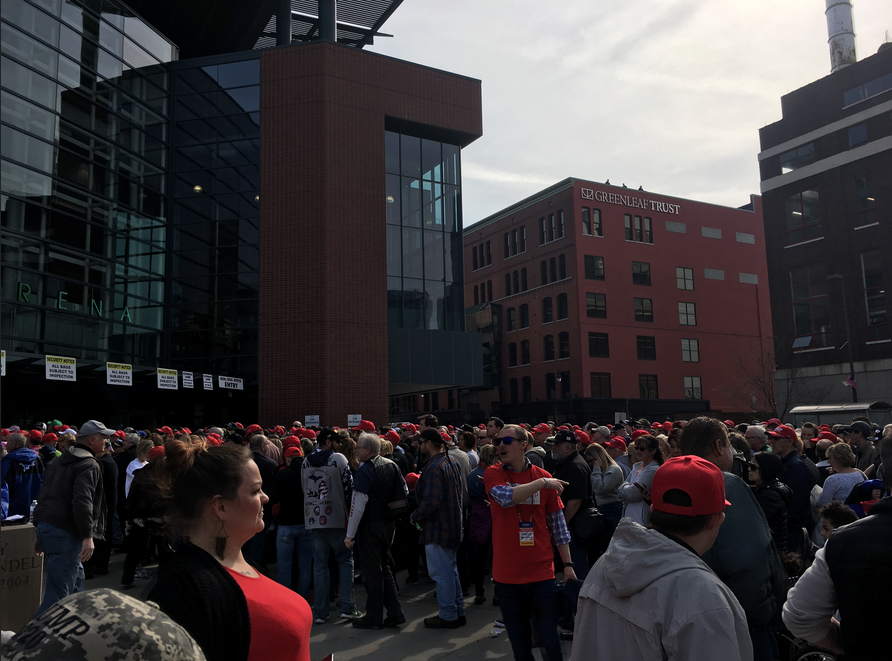In the aftermath of racially-charged shootings nationwide, members of the Grand Rapids community came together to mourn violence, learn from the experiences of others and investigate where racism might be present in the Grand Rapids community.
Teens rallied downtown in a peaceful protest in July. Calvin College held a teach-in session on standing up against racism. The Grand Rapids Police Department hired an outside firm to assess whether racial profiling is occurring during traffic stops. Partners for a Racism-Free Community hosted community dialogue on racism.
In response to the police killings of black men in early July, author and speaker Austin Channing Brown led an event in the Calvin College Chapel called Teach-In to Stand Up. On July 13, community members and Calvin students, faculty and staff gathered to hear from Brown and members of the history, sociology and religion departments at Calvin.
The focus of the teach-in was to empower community response and provide practical ways to act in the face of tragedy. Pastor Mary Hulst, in an interview with CRC Communications, said the goal of the event was to “discuss and model how we respond to tragedy. We are not helpless in our responses.” The chapel provided stations for prayer and for processing grief through artwork.
That same week, a teen-organized demonstration called #AmINext drew participants of all ages to Rosa Parks Circle on July 16 to protest violence against minorities. The demonstration began as a Black Lives Matter protest, but changed its message after the official Grand Rapids chapter of Black Lives Matter withdrew its support from the event. The rally adopted the slogan 4Unity as part of its focus on solidarity and healing.
GRPD Chief David Rahinsky spoke at the rally and a lawyer explained to the crowd what their rights were if stopped by the police. Anneke Kapteyn ’17, who attended the demonstration, said she admired the passion and initiative of the rally’s teen leaders.
The July 16 rally was not the only effort the GRPD made this summer to increase community-police relations. In an effort towards transparency, the GRPD has hired Lamberth Consulting to review traffic stops in the Grand Rapids area.
The study will run from August to November. Lamberth held community meetings in the first two weeks of August to explain the methodology and aims of the study, which relies on surveyors to monitor intersections and note the apparent race of the drivers in order to provide a report of the racial makeup of Grand Rapids’ streets. The data will then be compared to the GRPD’s records of traffic stops. This will allow Lamberth to determine whether traffic stops reflect the racial makeup of the area or whether racial profiling might be occurring.
On August 26, Partners for a Racism-Free Community hosted an event called #RacisminGR, billed as a space for community conversation around racism and inequity in Grand Rapids. Attendee Morgan Hayden, a GVSU student, said of the event, “It was discussion-based and the platform was open, so that people of all backgrounds could feel comfortable talking.”
#RacisminGR drew a full crowd; the ICCF room it was held in ran out of chairs. Hayden, who is white, appreciated “being able to hear stories of people who have experienced racism within my own community” and reflected on the learning experience of feeling “uncomfortable when I was the only one in my small group who couldn’t immediately state my first experience with racism.” This event was one in a series of #RacisminGR events; the next is September 29 at 6:00 p.m. at the Grand Rapids Public Library – Main Branch.









